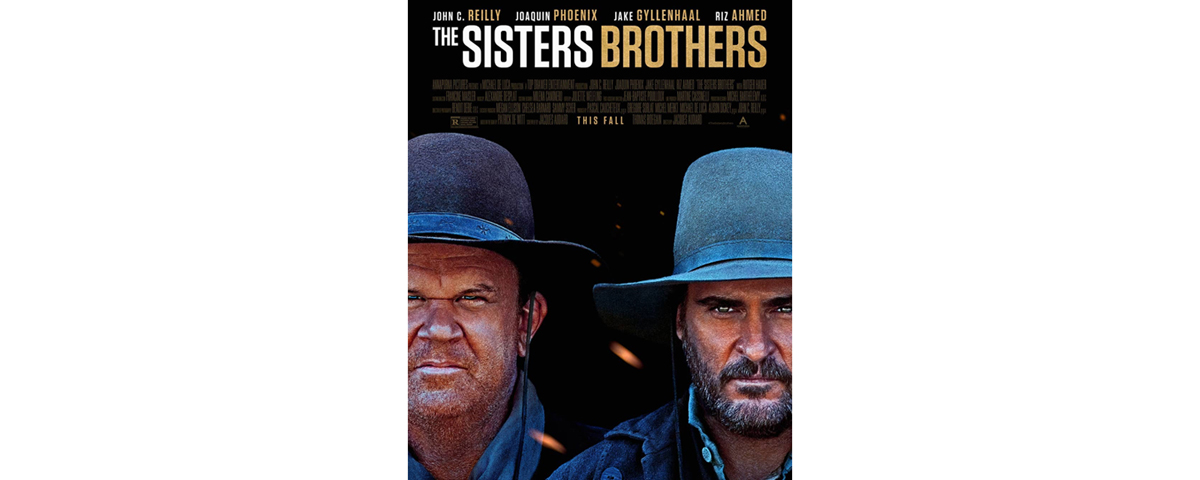The Sisters Brothers, Annapurna Pictures, 121 minutes, 2018, R
The Sisters brothers, the pair of antiheroes at the center of this film, couldn’t be more different. The elder, Eli (John C. Reilly), is thoughtful, kind and vulnerable, while the younger, Charlie (Joaquin Phoenix), is hotheaded, belligerent and obscene. Together they are awfully good at what they do—killing people.
The Commodore—the man for whom the Sisters kill and who appears only from afar—is an allegorical baron of sorts who seems to have amassed both a great fortune and a great many enemies. The brothers’ latest “mission,” as Charlie passionately describes it, is to track down chemist Hermann Kermit Warm (Riz Ahmed), who is traveling to California with a secret formula that promises to easily extract gold from rivers. They are to kill the chemist and return with the formula.
One of the Commodore’s spies, John Morris (Jake Gyllenhaal), has already pinpointed Warm and is keeping tabs on him until the Sister brothers arrive. But Morris, whose Latinate diction often befuddles the brothers in telegrams, finds what he considers an intellectual equal in Warm. They become friends, then business partners and together try to pull a fast one on the two killers on their tail.
The scenes with Warm and Morris, who engage in scholarly, often idealistic discussions, play nicely against the cruder poetics of the Sisters brothers. Warm proposes to build a post-capitalist, post-crime utopia…in Dallas, of all places. To do it, of course, he needs gold. All four lead actors are magnificent, and when they come together, the film soars into its own briefly sustained utopia. At times The Sisters Brothers feels like different buddy movies screening simultaneously, and it all works.
The characters—gunfighters and prospectors, wanderers and adventurers—may hold the same occupations, motivations and dreams as many a movie character before them, but they’re so richly plumbed by both script and performance that the archetypes feel born anew. The same can be said about the world that director Jacques Audiard has crafted. Despite the high prospect of death, this California, at the height of the Gold Rush in 1851, is exhilarating. Morris describes its fast-paced development in his journal: “First tents, then houses, then women fiercely discussing the price of flour…[in] places that didn’t exist three months ago.” When the Sisters brothers arrive in the bright new metropolis of San Francisco for the first time, they beam with excitement. So do we.
The Sisters Brothers is not declaratively subversive, nor is it a simple exercise in Western tropes. It tends to hop along its own trail at its own pace, often conflating commonly seen subject matter (a gunfighter challenged by another in a stable, for instance) with more unusual ones (e.g., a gunfighter challenged by the dread of using a toothbrush for the first time). The bizarre isn’t there to throw commentary onto the commonplace, nor is the commonplace meant to alleviate the audience from the bizarre; it all just seems perfectly suited to the experience of the Sisters brothers—a welcome addition to a long line of luminary Western duos.
—Louis Lalire





